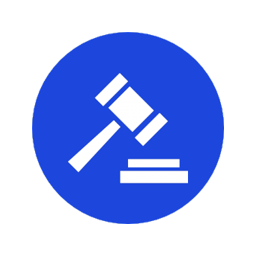Web & Digital Governance
Web governance is focused on the process and operational protocols behind the creation and support of websites. Mark works with campus leadership and web teams to develop a web governance and management model that provides the framework for a mature organizational approach to the web that results in a better website that is better aligned with institutional strategy.

Most colleges and universities struggle with how to manage their websites. Resources are scarce, disparate departmental web teams work in silos with little coordination, authority is not clearly defined, policies and standards are not enforced, and web strategy is vague at best and non-existent at worse. In addition, most colleges address web quality by redesigning their site or investing in a CMS when the real problem lies in the management practices.
The importance of a college website cannot be understated. It is mission critical. It is the primary point of contact for all audiences from prospective students to current students to alumni. In order to fully leverage the web, a formal governance and management structure is required. Mark works with campus administrators and web teams to develop a web governance and management model that provides the framework for a sustainable, efficient, and cost effective web presence that aligns with institutional goals and objectives. Focusing on web governance provides a number of benefits including:
- A better website from improved decision making, formal structure and process, and systematic evaluation that aligns web strategy with institutional strategy.
- Improved efficiencies and ROI through the creation of a formal web operations process that that results in quicker publishing cycles, better coordination, reduction of duplicate effort.
- Improved quality control by systematic monitoring of spelling errors, broken links, etc.
- Mitigation of both legal risks and reputation risks
- More agile, decisions get made quicker
- Improved staff morale from a clear understanding of roles and responsibilities, authority and accountability.
- Improved usability and user experience for site visitors through the establishment of web standards that treat the entire site as a whole rather than a collection of microsites.
- Improved project management and project prioritization
- Better communication, coordination and collaboration
Process and deliverables
- Perform a web governance audit and evaluation on existing governance and operational models
- Create a web governance charter that establishes decision making authority, roles and responsibilities, project prioritization process, resource allocation model.
- Create a comprehensive web strategy that aligns the web with institutional goals and objectives
- Create web policies which are a set of legal, compliance related, editorial and technical constraints focused on mitigating risk.
- Create web standards including editorial, design, information architecture, web tools, and server infrastructure.
- Review web operations with a focus on quality assurance and operational efficiencies.
- Create and implement a comprehensive, integrated web evaluation framework with an emphasis on meeting organizational goals and objectives.
Please contact Mark for more information about web and digital consulting.
